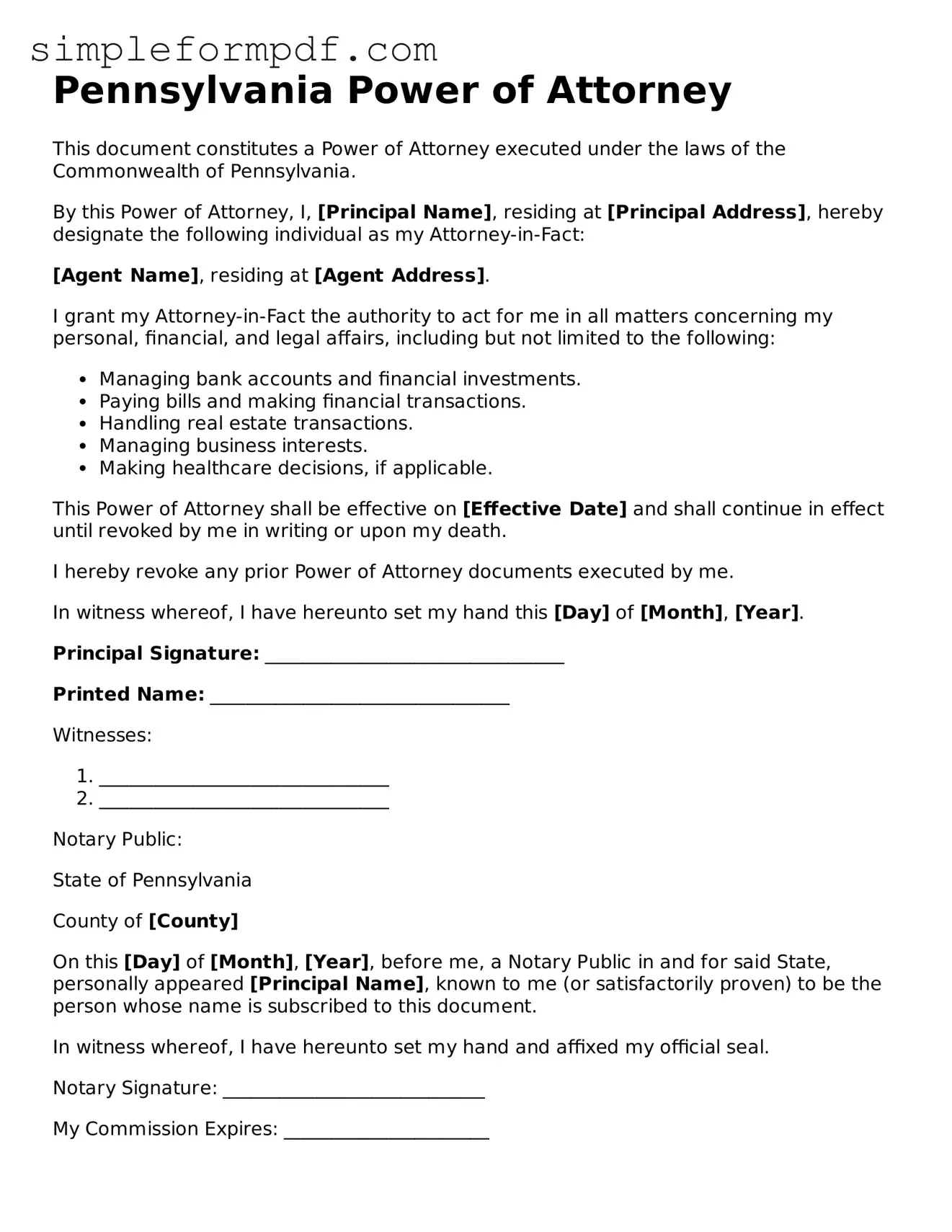Free Power of Attorney Form for the State of Pennsylvania
The Pennsylvania Power of Attorney form is a legal document that allows an individual, known as the principal, to designate another person, referred to as the agent, to make decisions on their behalf. This form can cover a wide range of decisions, from financial matters to healthcare choices, ensuring that the principal's wishes are honored even when they are unable to communicate them. Understanding how to properly fill out this form is crucial, so take the first step toward empowerment by clicking the button below.
Launch Editor

Free Power of Attorney Form for the State of Pennsylvania
Launch Editor
Need instant form completion?
Finish Power of Attorney online in just a few minutes.
Launch Editor
or
Download PDF
